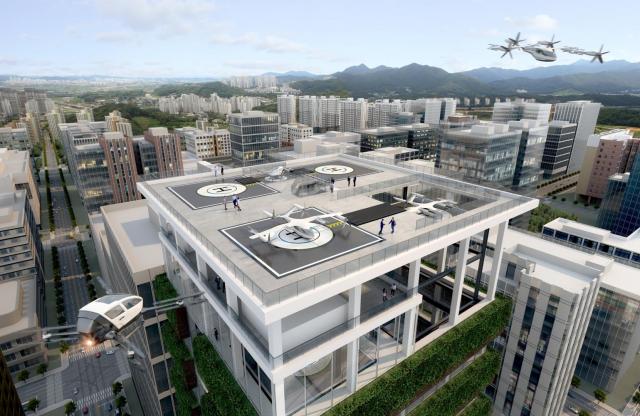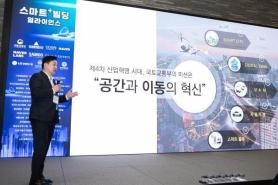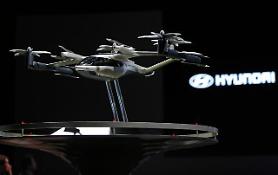
The top elevator maker in Korea said Wednesday its consortium has been selected by the Ministry of Land, Infrastructure and Transport to develop a vertical airport, or vertiport, where aircraft land and take off vertically, and a system for monitoring landing and takeoff.
The 10.52 billion won (US$7.81 million) project runs from April 2024 to December 2026. The consortium includes Lotte E&C, the Korea Testing Certification Institute, Korea National University of Transportation, Cheongju University, and Ninano Company.
Vertiports currently under development by other companies across the world typically require large plots of land, posing limitations in urban areas with skyscrapers.
Hyundai Elevator said it aims to address this challenge by developing a new vertiport that integrates technology enabling aircraft to move both vertically and horizontally.
Korea aims to commercialize manned drone taxis by 2025, followed by the adoption of remote-controlled vehicles by 2030 and fully autonomous service by 2035. Each flying vehicle will have a safety manager on board until pilots are no longer required.
K-UAM One Team, a consortium comprising five domestic organizations including Hyundai Motor and Korean Air, successfully conducted a five-week test of testing integrated UAM systems. The test, involving aircraft flight, safety, operational systems and traffic management, took place at an aviation test center in the southern county of Goheung for five weeks from March 11.
Copyright ⓒ Aju Press All rights reserved.



![[CES 2023] SKT simulates urban air mobility flight using VR system at CES](https://image.ajunews.com/content/image/2023/01/07/20230107174216247980_278_163.jpg)
